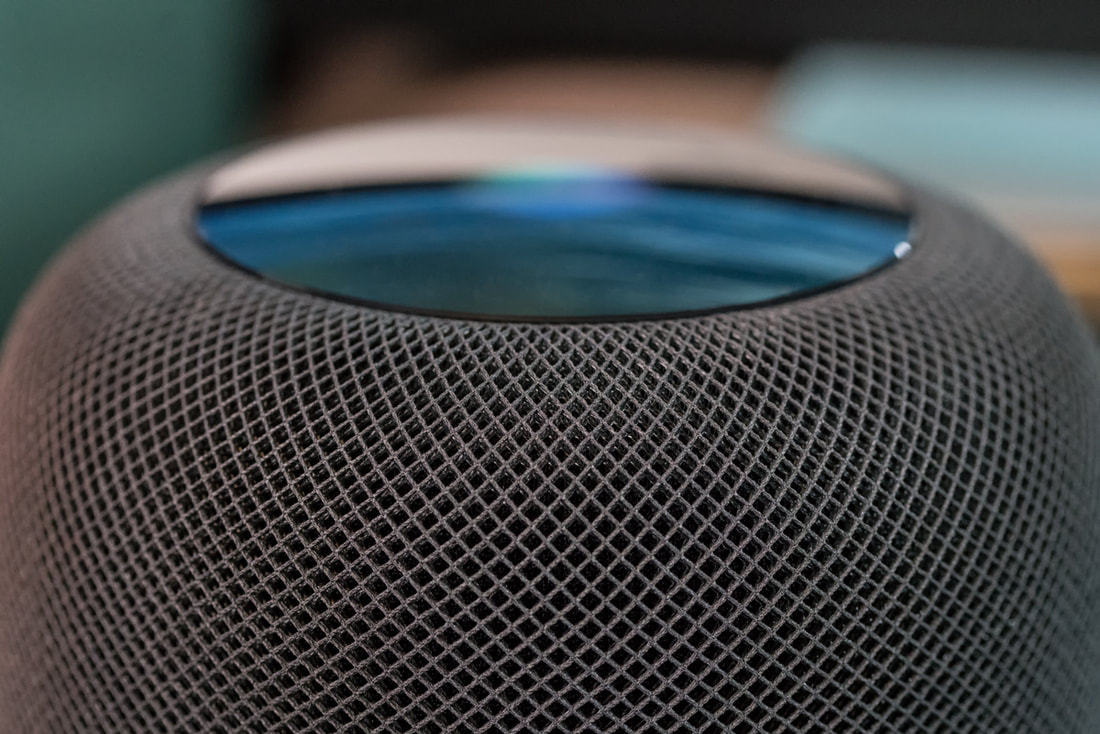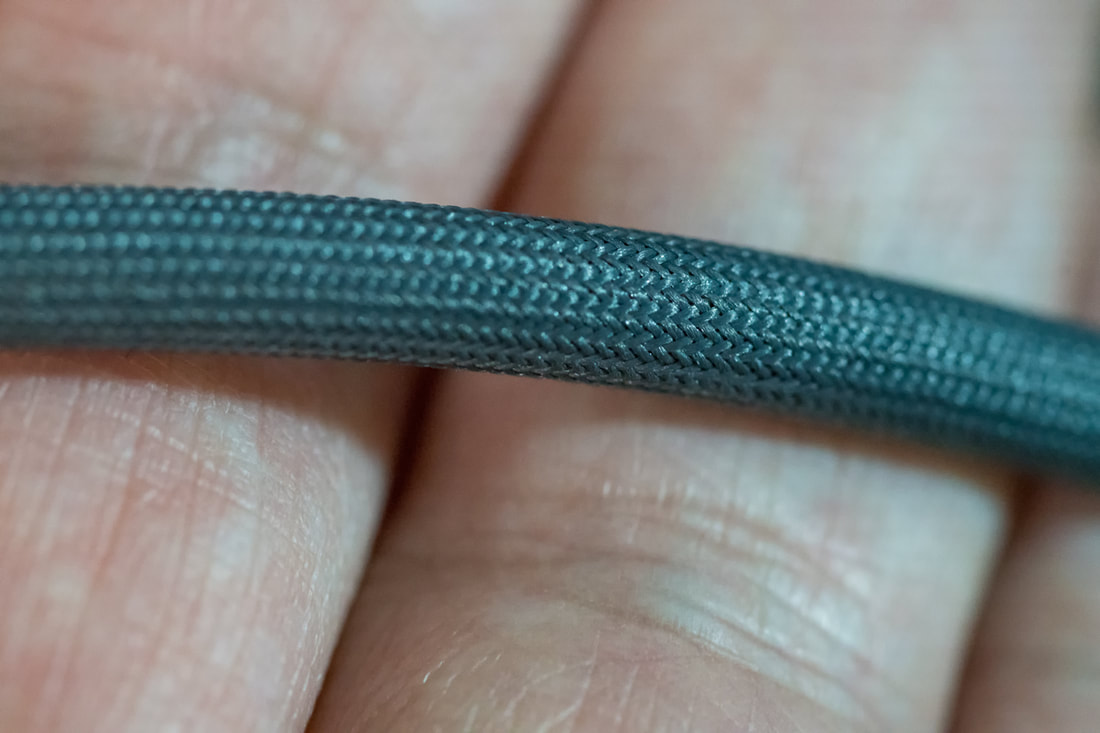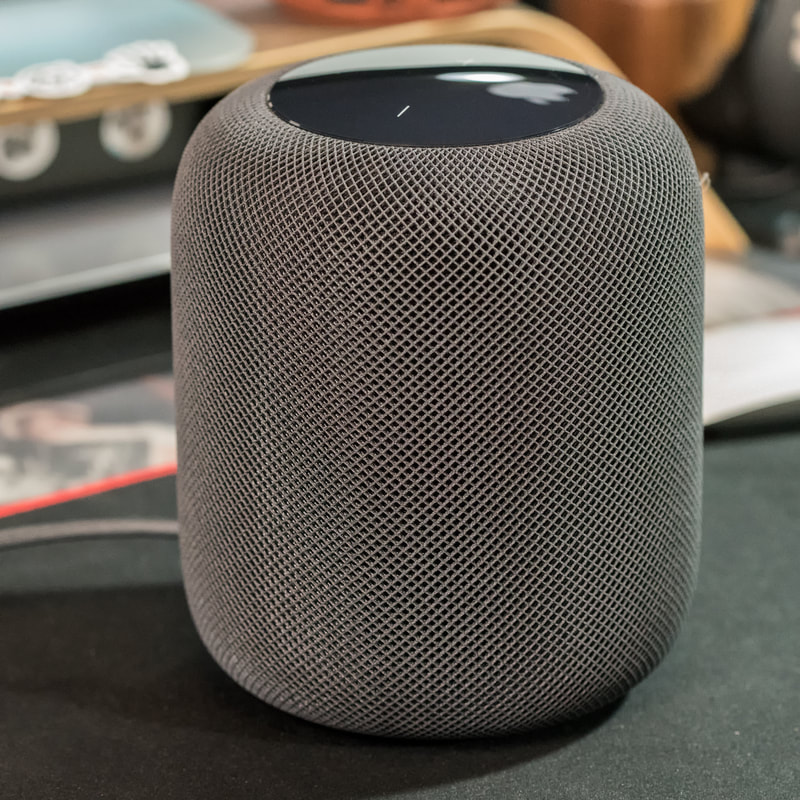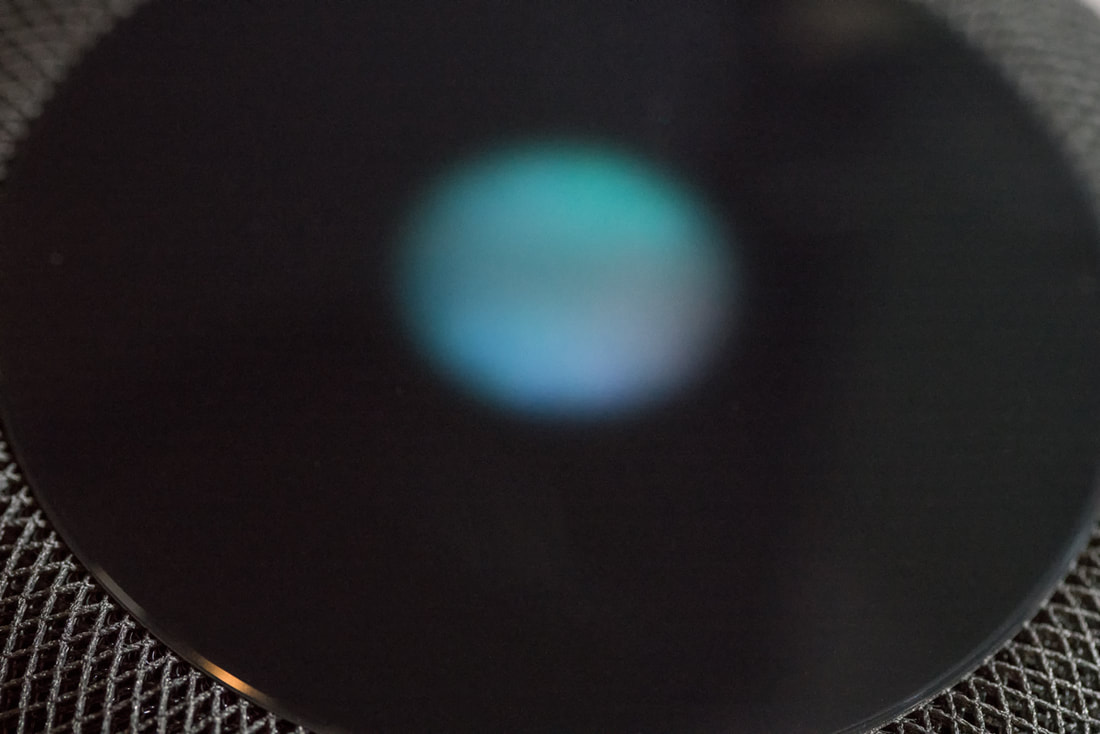Also, a demonstration of how I use it with J River or Plex with the Echo to access my local library.
|
Just a not so quick comparison of Google Home, Alexa, and the HomePod.
Also, a demonstration of how I use it with J River or Plex with the Echo to access my local library.
0 Comments
I have been asked about Apple's privacy versus their competition. Since Apple doesn't tout privacy in their ads, and I have referred to it in the past, I decided to post excerpts from a few articles on the subject (there is link to the longer article in the title of each section). I am not personally endorsing any of these specific articles, so if you have an issue with what they say, I suggest contacting them through the link to the article. I do think that they all point to the same thing, though. Apple doesn't use your data as a separate revenue source and their competition does: Time.com article"First and foremost, there’s the issue of these companies’ business models. The goal of each outfit is to make the most money it can for its shareholders, naturally, and in that sense Apple — pricing its products at a premium — is the most visible example of the maxim. But $1,000 iPhones and pricey accessories aside, at least the company is only buttering its bread on one side. Google, by contrast, not only sells phones and other devices, but also makes money off the ads (and the user data) that appear on those handsets, laptops and tablets. Amazon’s gadget-oriented business model wants to sell you things (like Amazon Echos) that will help sell you more things (through voice ordering) — a dizzying value proposition. And then there’s Facebook, which doesn’t appear to be selling its users much of anything at this point. But look more closely and you discover Facebook’s users (and their kids’ bath time photos) are themselves the products unwittingly feeding the social network’s revenue model." Newsweek.com article"This is therefore one area where Apple trumps the competition thanks to the firm’s commitment to user privacy. Apple has been a frequent proponent for privacy, having famously denied the FBI the backdoor it wanted for the iPhone used by one of the San Bernardino shooters in 2016. Apple says: “With HomePod, only after ‘Hey Siri’ is recognized locally on the device will any information be sent to Apple servers, encrypted and sent using an anonymous Siri identifier.” This means that not only will Apple only record people after they have requested the virtual assistant, unlike Google and Amazon, it will also not gather information on users for the purpose of advertising and marketing." iMore.com article"I don't want an open Amazon or Google microphone in my house. Call me whatever names you feel you must, but the idea of companies that monetize my data and behavior being given my conversations and activities for free, and in so doing creating a second or multiple additional points for data breach or abuse, has always felt like a bad deal to me. (I can't use Google Assistant in general because, every time I decline to give it access to my web and app data, it declines to turn on — which feels coercive, given how much it could still do absent that data.) Apple, by virtue of its business model, has no interest in storing my personal data any longer than it absolutely has to, and no interest in monetizing my behavior.So not only does it keep Siri offline until it hits the trigger phrase, once it goes online it generates an anonymous token ID and transmits all data with end-to-end encryption. That way, never have to worry about entire meeting transcripts being stored in logs, employees violating my privacy and snooping on me, or my past data being exposed over due to some future bug, partnership, or request. That's not to say I don't want Apple using my data to provide me with better direct services. I just want my data to be used for my benefit, not for the company's bottom line. Not unless I start getting a share of the money they make off of it. (Which is way more valuable than any 'free" app or service offered as compensation to date.)" Cnet Article"Siri might hear you loud and clear on the new HomePod smart speaker, but Apple won't. Apple introduced the Siri-powered device Monday at the Worldwide Developers Conference, making it clear from the get-go that voice commands will be anonymized and encrypted. Voice assistants have already taken over homes with the Amazon Echo, Google Home and Microsoft's Cortana speakers. They've all raised privacy issues of their own, but Apple adds some scale to the concerns. As the largest tech company in the world, Apple is often in the crosshairs of hackers and governments. For example, the number of security orders from US law enforcement to Apple doubled to about 6,000 during the second half of 2016, compared with the first six months of the year, the company disclosed in late May. The HomePod won't always be listening to its users. Like Amazon and Google's voice assistant, a person activates it with a wake word or phrase. With the HomePod, it'll be "Hey Siri." "Our team cares deeply about your privacy," Apple Senior Vice President of Marketing Phil Schiller said at Monday's keynote. "It has that magic phrase, 'Hey Siri.' Until you say it, nothing's being sent to Apple." When the data does get sent, anonymization and encryption means your voice commands aren't tied to your Apple ID, and even the company isn't able to clearly view it. So far, data stored on Amazon's servers is not anonymized. Google Home's assistant is able to access a user's search and location history and stores data on voice commands until it's been deleted. The FBI declined to disclose how often it requests voice data from Amazon's Echo, but the retail giant has shown that it can retrieve Alexa recordings from specific users in a criminal investigation. The encryption for HomePod conversations sticks with Apple's push for user privacy from the government, a mindset that also helped the company fight off the FBI's demands to unlock the San Bernardino terrorist's iPhone in 2016." TechCrunch Differential Privacy article"Apple is stepping up its artificial intelligence efforts in a bid to keep pace with rivals who have been driving full-throttle down a machine learning-powered AI superhighway, thanks to their liberal attitude to mining user data. Not so Apple, which pitches itself as the lone defender of user privacy in a sea of data-hungry companies. While other data vampires slurp up location information, keyboard behavior and search queries, Apple has turned up its nose at users’ information. The company consistently rolls out hardware solutions that make it more difficult for Apple (and hackers, governments and identity thieves) to access your data and has traditionally limited data analysis so it all occurs on the device instead of on Apple’s servers." A Quick Wrap UpFrom now on, I will just link to this post in the future. Hopefully, it helps to understand what I am referring to when I discuss Apple vs their competition in the area of privacy. If you want it straight from Apple, here is a page to get started:
https://www.apple.com/privacy/approach-to-privacy/ Setup - no muss, no fuss
Ah yes, a new Apple product...the HomePod. Out of the box, you notice that it is hefty for its small dimensions. It takes a couple minutes for it to read information off your iPhone or iPad and it is ready to play music. Fast and easy setup that is rivaled only by Airpods.
The main thing that some won't like is that the power cable is not removable (Correction: The cable is technically removable.). I believe they may have gone this route to avoid a big ugly power brick since a lot of people will be putting one of them in their kitchen. The cable itself looks great and is pretty long. Below is a picture of the fabric covered cable: Siri for Music
Lots of Siri bashing going on by people that either don't understand the purpose of this device or simply want something to complain about. Siri for Apple Music works great! Pick a song, album, artist, playlist and it gets it right nearly every time. Actually, I have used it for hours and it hasn't missed a beat, but I hesitate to say it will work for every song in the world. I did test it with the album A1A, by Jimmy Buffett, that always throws me into the maps app on the iPhone, and it played without a problem.
Siri still needs commands spoken in a certain way, so if you want a movie soundtrack, it makes sense to tell her you want to hear "the album Pretty in Pink Movie Soundtrack". Some of this is because there are 40 million songs to choose from, so the more specific the better. I also tested playing the music loud and then saying "Hey, Siri". It does a fantastic job of hearing your voice over loud music. I can't say the same about the Echo Dot. I have had to get close to it and scream in similar situations. Sound Quality
For the size, it is unbelievable. The sound is big and clean with punchy bass. It isn't going to rival my floor standing speakers combined with my 50 pound subwoofer, but it is still pretty amazing for a speaker with a 5.6 inch circular base and 6.8 inches tall. I am not sure how Apple will demonstrate this in the store, but you have to hear it for yourself.
I have had it in a small room and in a spot that splits two large rooms. It fills up a small room better, but no matter where you put it, it sounds great for its size. The volume won't blow out your eardrums, but there is no distortion at 100 percent, so you are always getting great sound. AirPlay
I tested this with AirPlay and it works great. I have the excellent Netgear Orbi routers, so I never heard a drop out, even when playing lossless audio from my library and Tidal.
Note: I get paid commissions for purchases made through any links to Amazon products in this post. The AirPlay 2 features that bring AirPlay into this century are just around the corner and I expect will have more people buying HomePods. I have tested AirPlay 2 with my AppleTVs and being able to use multiroom audio directly from iOS takes things to a new level. Podcasts
I typically use the Overcast app for podcasts on my iPhone, but I have been using the Podcast app for the AppleTV for years, so I am familiar with it. With the HomePod, you can tell it to play a podcast and it will play without a problem. It will also allow you to skip forward with commands like "Skip forward 2 minutes".
I did have some issues asking for some shows. For example, it has no idea what "iMore Show" is. It worked fine for Vector with Rene Ritchie, Accidental Tech Podcast, etc. It is supposed to be ableto pick up where you left off, but I am still trying to figure that one out. Homekit
I have tested this with Hue Bulbs that I have all over the house. It is very fast and works great. I have tested dimming bulbs, changing colors of bulbs, and turning them on and off. Very impressed.
General Siri Commands
If you buy this to rival Google Home or Amazon Echo for trivia, you will be disappointed. This isn't going to try to answer every question under the sun. It will convert measurements, set an alarm, get you the weather, and a few basic things. It does get some information from Wiki, but if you get a bunch of I don't know responses, you end up not trying anymore.
While it won't rival its competitors in this arena. The point of this device is great sound quality in a small package, not to play trivial pursuit. If you have no concerns about privacy (see my post about privacy here), get Google Home Mini or Echo Dot to answer your random questions or just get out your iPhone and launch Google Assistant. I have Echos all over the house and I just haven't had much need to ask it a bunch of random questions. Combining with Echo Dot
Since the HomePod has AirPlay capabilities, it does open it to some Echo Dot skills. I use the J River Media Center skill on the Echo combined with J River running on my computer to send my personal music library audio files to the HomePod using AirPlay.
I have also tested the Plex app skill with my AppleTV and I was able to send the AirPlay stream to the HomePod. It is an easy backdoor to playing my lossless files on the HomePod using theEcho Dot. That being said, the AppleTV has to be manually adjusted to the HomePod airplay speaker every time you use it, so the J River Media solution on my computer has been a better option. Though, honestly, I won't use this feature very often at all. Third Party Apps
This is for the 36 million and growing users of Apple Music. It isn't here to get Spotify more subscribers. However, you can use AirPlay with any audio stream from iOS or a computer ( may need an app like Airfoil), so no one is completely locked out.
I have seen review after review complaining about the lack of third party audio streaming. Guess what, it isn't that unusual. Sure, they are one of the few devices without Spotify, but the Amazon Echo doesn't support Google Play Music, Apple Music, Tidal, etc. As far as third party skills, get anEcho Dot for ~ $39 (though it is often sale) if you need things like Plex, J River, Harmony Remote, support. Get the HomePod for the Apple ecosystem. Just be aware of what it is for before you decide. Who is it for?I will try to post an unboxing video and some of my impressions when I get a chance. However, I want to run down a list of what you can expect from the HomePod to make it easier to decide if the product is for you or not: Who is it for? 1. Apple Music Subscribers that want voice control of music from a speaker 2. People in iOS that use Airplay. 3. People that want great sound from a small speaker 4. People that listen to Apple Podcasts 5. People that use HomeKit devices 6. People that prefer Apple's approach to privacy Who is it not for? 1. People that don't use Apple Music that want voice control of music from a speaker 2. People that want it for random trivia or third party skills 3. People that do not own an iPad or iPhone Does it work for my purposes?
It absolutely does exactly what I wanted it to do. I own Echo Dots, an Echo Spot, and a Google Home Mini. This is a different type of device. It works with Apple Music, Apple Podcasts, and Airplay. Not to mention the upcoming Airplay 2 features. This makes it more useful for music than the other devices. I am a music fanatic, so anything that makes music more convenient, and sounds great, means I will listen to music more often. While it is great sounding, for a small speaker, with all kinds of smarts related to room measurements, I won't be replacing my many speaker setups. It isn't meant to replace a main system. It is more about convenience without listening to a tin can.
As for Siri. she works great with Apple Music. I use it that way daily, so I know how to talk to the assistant to get it to play music I want to hear. I will still keep my cheap Echos around, so I have all of the other assistant features nearby, anyway. I just see them as very different devices, like a truck vs a sports car. What would I change?
Lets pretend I could change anything about the HomePod. I would put an aux input on the thing. This would allow me to connect a Dot and get the best of both worlds. Outside of that, the HomePod has Bluetooth inside, but you can't use it for Bluetooth streaming. I would turn that on so it could be used for Bluetooth.
Down the road, I would love to see an Apple version of the Echo Dot that I can put anywhere and cost a fraction of the HomePod. I have my doubts that Apple wants that market, though. Note: I get paid commissions for purchases made through any links to Amazon products in this post. |
About me:Dog loving, Big Green Egg worshiping, Tech enthusiast, residing in Memphis, TN. Home of the Tigers, Grizzlies, Elvis, Al Green, Stax, Hi Records, Ardent Studios, Beale Street, Peabody Ducks, etc.. I have also added the Jeep Wrangler to the list of things I am enthusiastic about. Archives
May 2024
Categories
All
|





 RSS Feed
RSS Feed